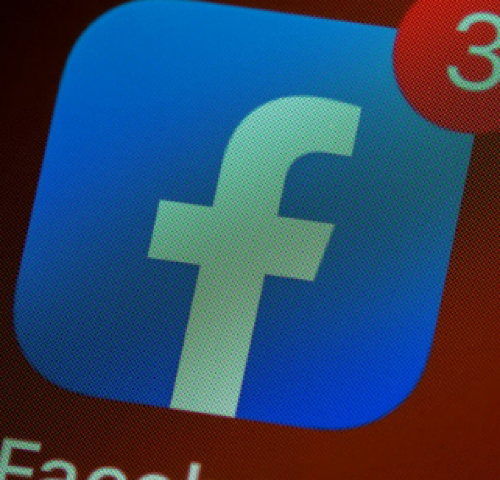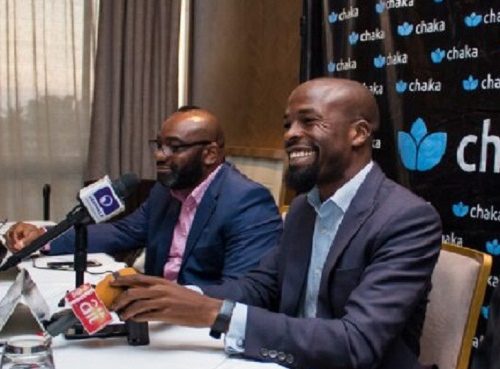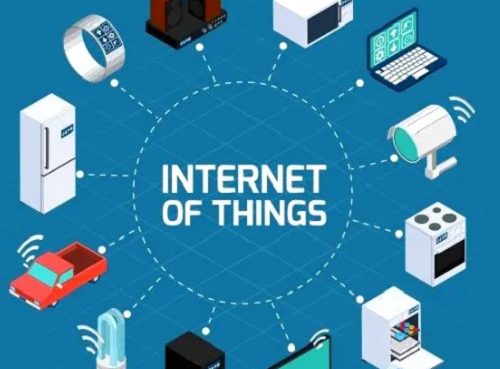If you build the road, you stand to collect toll fees or some royalties. Fair right?
Now think about the internet, the unlimited expanse of real estate where we all now live and move and have our being. The world’s most valuable companies are internet companies and to boost their growth, they are investing in seismic resources to get more people online.
Africa is the grand theatre of this scramble for exponential user growth. In particular, Facebook and Google are in a race to provide the continent with unparalleled fibre optics connectivity in a bid to get more people online. A Facebook office in Nigeria is set to open in the second half of 2021.
How significant is this Africa project for Facebook?
Zuckerberg’s landmark
Fifteen years ago, you were deemed ICT-savvy in Nigeria if you had email and could search on Google. Yahoo messenger was cool but it was quirky and had begun to fade.
In the decade since, social media has emerged as the first port of call for people online. If I want to search a topic on politics or football today, I first open Twitter because I expect a
narrow set of relevant results. But Twitter has about 2 million users in Nigeria.
With 27.5 million users, Facebook is easily Nigeria’s most popular media platform.
When Mark Zuckerberg visited Nigeria in 2016, that figure was at 16 million monthly active users. A 41.8% growth in four years would be impressive but when you account for Nigeria’s rapid population growth, Facebook still averages around 10% coverage.
Hence, Zuckerberg’s move to dial-up growth by taking matters into his own hands. He’s waited for African governments to ramp up broadband connectivity but there isn’t a lot being done yet. 800 million of the continent’s 1.2 billion people are not connected to the internet due to infrastructure shortages. On average, 1GB of data costs an African user 8% of monthly income, way off the 2% recommended by the UN.
The ‘2Africa’ submarine cable announced in March is Facebook’s way of killing two birds with a stone. Firstly, the 37,000km fibre optics cable project will connect 23 African countries, Europe and the Middle East. If completed, it could be the first subsea cable network to connect East and West Africa. This presents the
company as an altruistic partner for scaling the digital economy ambitions of African governments. It has been estimated that 2Africa and other Facebook projects will grow Africa’s economy by $57 billion in five years. Internet traffic will increase by 9% by 2024.
Part of this internet growth, Facebook hopes, will accrue from upticks in Africa’s use of its suite of services – from the very popular WhatsApp and Messenger apps to Facebook’s Virtual Reality headsets. As long as US antitrust regulators do not get their wish to break the $700bn company, Facebook will be looking to sign up more users to its expanding suite of services. And since it has no hope to crack China, Africa has become its last frontier for growth.
Anticipating the growth-enabling events of the coming years, it only makes sense for Facebook to begin placing foot soldiers to prepare to service the payload. The Nigeria office, which will open in the second half of 2021, will be composed of engineers, salespeople, and policy communications professionals. Many of these staff will likely be wooed away from local startups – they’ve put out ads for developers – so expect announcements.
We know what engineers and sales teams do, but if you want to know how Facebook hopes to settle in, keep
an eye on the policy people. They are the ones to pitch the company’s values to Nigeria’s regulators who are already sharpening their knives to tax and regulate the company’s presence. Facebook’s misfire with WhatsApp pay in Brazil alerted folks at the Central Bank of Nigeria to keep vigil. So don’t be surprised if Facebook taps former banking execs to be the face of their interface with the government.
Those policy people will have to defend Facebook over growing concerns about its role in undermining democracy around the world. One documentary after another portrays it as a social experiment gone rogue that must either be heavily regulated by taxation, among other things or just banned. I have argued that social media platforms
are useful in Africa to give citizens a voice in democracy but that doesn’t mean platforms like Facebook should
be allowed to run wild.
Nigeria isn’t the easiest place to do business in the world but Facebook isn’t looking for easy topography. They are excited by the potential to have deep ties in what may be the world’s 3rd most populous country by 2045.
Bank challenges its challengers.
In March, Segun Agbaje, the CEO of GT Bank, gave a riveting presentation to analysts in which he promised to position his bank for the emerging fintech race in Nigeria. Acknowledging Paystack as a leader in payments, Agbaje
painted a vision of a near-future where GT becomes not just a bank but a financial powerhouse across all services.
He is due to step down as CEO in 2021. But as we explain in this report, Agbaje is orchestrating a strategic restructure of the GT enterprise into a holding company, to potentially preserve his grip on the wheel ahead of a possible billion-dollar IPO.
Africa and the Yuan. Ugandan president Yoweri Museveni refers to China as “Africa’s true friend.” Thanks to the infrastructure loans from the Belt and Road Initiative, many other African leaders share M7’s sentiment.
Call BRI a move for soft power but China is expanding its presence around the world. A particular tool of this mission has been its currency, the yuan. We took a look at how UnionPay, a payment processor, has led this mission in Africa through partnerships with fintechs.
Before COVID-19, many financial services and telecoms companies had already made a headstart on a mobile-first approach to delivering their services. However, with physical movement
restricted in many parts as a result of the pandemic, other sectors are now taking a similar approach.
The pandemic is expediting the adoption processes in the mobile ecosystem and highlighting just how important it is to have a clear digital strategy. With this digital/mobile-centric approach as the new normal, it is essential that companies have a clear understanding of how customers are engaging with their services to ensure that they are making the most of the new opportunities presented by this shift. As the continent settles into this new way of doing things, companies must take a data-driven approach to their decision making, underpinned by a holistic view of the user journey, to take their customer experience to the next level.
With this insight-led approach, companies will not only be able to effectively digitise existing services but they will also drive the delivery of new services that were previously not possible.”
– Daniel Junowicz, Managing Director, LATAM & Africa, AppsFlyer
Room for a Boom?
I seldom check my Facebook account these days. But I have not completely abandoned it. There are some people in my circle who are now inactive on Facebook. However, it’s a good way to keep up with family, especially those older than I am. From time to time, I receive a friend request from an aunt or an uncle.
Only 23% of internet users in Nigeria are active on Facebook. Compare this to Egypt where 79% of its internet users are active on Facebook. So while Egypt has a higher Facebook penetration than Nigeria, it is not growing as fast as the latter.
The vast majority of Nigerian internet users are not active on Facebook which makes it a huge growth market for the social media giant. At least 75 million people who use the internet are not active Facebook users.
Nigeria has the highest internet population in Africa and it is projected to grow bigger. By 2100, it is projected to become the second most populated country in the world. So it makes sense that
Facebook is doubling down on its investment in the country. From its zero-rated app to its deep tech hub and its digital skills training programme and very recently, its plan to open a local office.
Facebook’s Nigeria ambition however faces a number of obstacles. The growing distrust for the platform globally is trickling down to its African audiences. More than half of young Africans do not regardFacebook as a trustworthy source of news despite its robust fact-checking programme. Also, data costs are still prohibitive despite investment in infrastructure.
But Facebook’s biggest risk yet could be
regulatory. As Nigeria’s oil revenues have dwindled, the government has faced pressure to find other options. Taxes affecting the digital economy are becoming commonplace. Facebook’s policy team is very likely to have its hands full.
Source: techcabal










